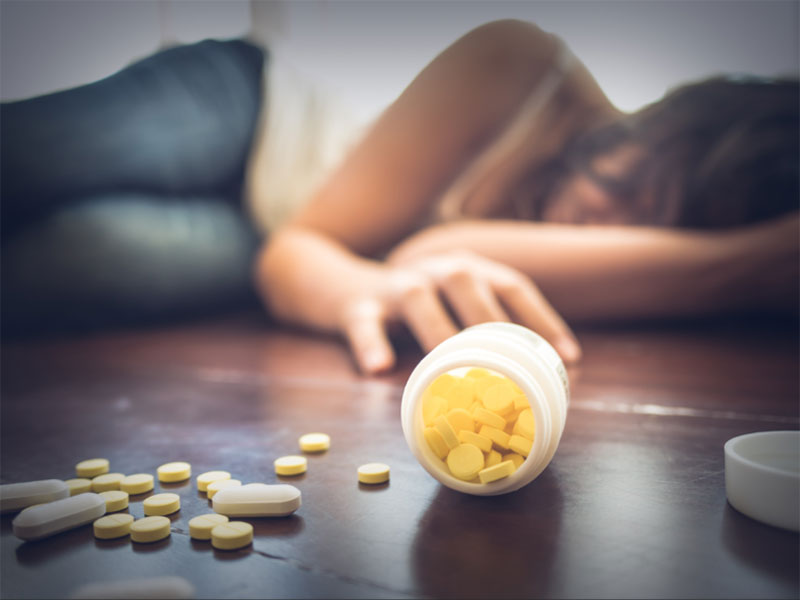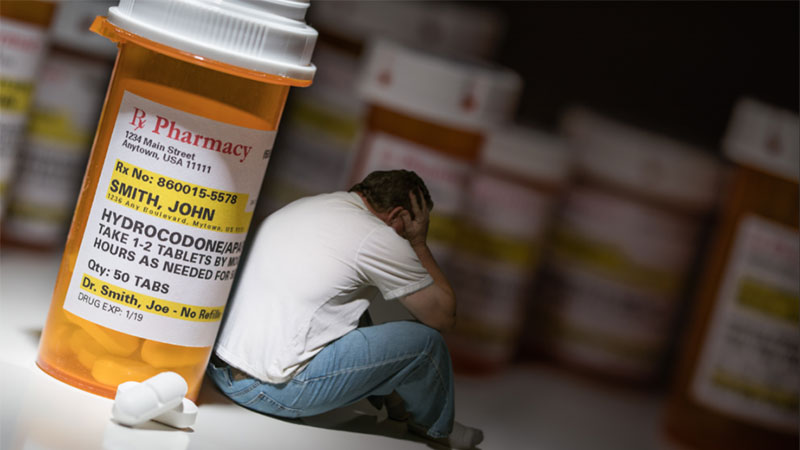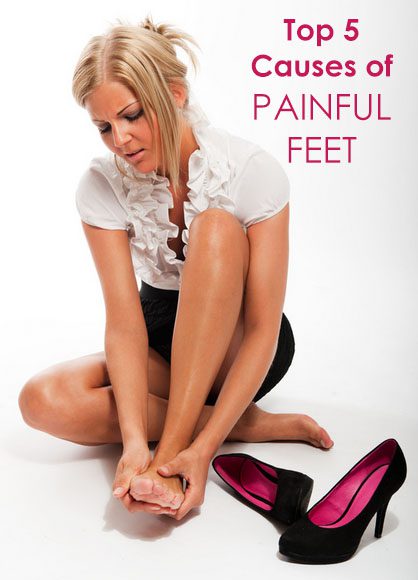7 Signs You’re Getting Addicted To Pain Medication
Painkillers are some of the addictive substances that doctors can prescribe to their patients. There’s no doubt that these drugs can help alleviate pain. But in the process, people who take them can feel an elevated sense of ecstasy and relaxation, which can trigger a craving for such meds.

Take the case of a painkiller drug called fentanyl. It’s a highly effective pain management drug that can pack a hundred times more punch than morphine, which means it can be very addictive. Fentanyl addiction can be fatal. If you think you’re having problems with this drug, it would be best to get help from facilities, such as Jackson House Addiction and Recovery Center, to start a wholesome treatment program.
For years now, doctors have prescribed fentanyl to patients suffering from chronic pain. But the word is out that this drug is one of the biggest causes of opioid overdose cases in the United States, where misuse of the drug has been rampant. Some people even use it in combination with other illegal substances like cocaine and heroin.
What Is Pain Medication Addiction?
Before discussing the signs, it would help to know what pain medication addiction is in the first place. Are you automatically at risk of becoming addicted once you take steps to manage your pain? Well, the answer is no. Even if you suffer from pain, there are drug-free ways to make it bearable.
However, the fact remains that there are cases where patients need to get prescribed medication from their doctors. But what may start as a well-intentioned treatment to manage pain symptoms can quickly go down the rabbit hole of addiction. In the United States alone, no less than 116 million people live with chronic to severe pain forms. This figure is roughly equivalent to 30% of the country’s entire population. Along with this number, opioid addiction has also risen over the years, and authorities are already calling it a public health crisis.
Addiction has been defined as a lingering disease affecting vital brain functions associated with motivation, memory, and the feeling of pleasure. Addictive drugs typically trigger happiness or a sense of euphoria, which spark cravings among users. Patients with addiction will have a hard time staying away from the substance that they’re addicted to.
So, it’s not surprising that people who suffer from addiction will have emotional, behavioral, and physical changes mainly brought about by their extreme craving for painkillers or other narcotic substances, for that matter. The strong desire that addiction brings can force people to do whatever they think is necessary and without regard for the consequences, just to get their fix.

Signs Of Pain Medication Addiction
Suppose you’re living with chronic pain for many years. In that case, your doctor will have most likely prescribed you some pain management drugs. The dangers of excessive pain medication use would be best to know addiction signs as early as possible. Here are the common signs that you may be addicted to pain medication:
- You Can’t Stop Thinking About Getting Your Fix
Remember the time growing up when you became obsessed with your favorite boy bands? You couldn’t help but think about their music all the time. Well, you’ll have a similar experience when you’re addicted to pain medication.
Thinking about your pills and being obsessed about the time you’ll pop the next dose into your mouth is a clear and often the first sign of addiction. Before you know it, you’ll also be preoccupied with where to get your supply.
Still, being dependent on your pain medication shouldn’t be misconstrued as an addiction. For example, if you’re suffering from a bout with arthritic gout, you may need some pain management drugs for a couple of weeks to allow you to stand up and move around. But if your dependence on narcotic pain relief has gone on for months, then there’s a big possibility that you’re starting to become addicted to your medication.
- You Get Pain Meds from Different Sources
When you’re addicted, one of your biggest concerns will always be having enough meds in your stash. Your doctor’s prescription will only allow you to buy a limited number of pills or doses, which will not be enough for you. As you focus on getting more pain pills, you’ll most likely try to source them from different suppliers.
You’ll buy meds online or even from a questionable peddler on the streets. There are even pain medication addicts who have resorted to stealing other people’s meds. Someone addicted to pain medication will always try to get more of the stuff.
- You Go on a Doctor Shopping Spree
This one is closely related to the many desperate tricks that an addict employs to get more pain medication. But unlike stealing or buying prescription drugs on the streets, this course of action has some semblance of following the proper channels to get pain meds.
Your doctor is ethically allowed to prescribe a limited amount of dosage to fight off your pain. Once that limit has been reached, you’ll need to look for other doctors who will write you a new prescription. Doctor shopping essentially happens when you go to different physicians to complain about your pain issues with the end goal of obtaining several prescriptions.
Having more prescriptions from various doctors, you have a better chance of buying more painkillers to beef up your stash. When you actively seek other doctors for painkiller meds, you may already be addicted to the drug. The problem is some doctors are willing to give out prescriptions beyond the allowable limits to accommodate patients.
- You Take More Than the Prescribed Dosage
When you go against your doctor’s orders and take more of your pills than necessary, you may be seeing an early sign of addiction. Initially, you’ll be telling yourself that there’s nothing wrong with popping one or two pills above what was prescribed or taking painkillers more than the required number of times in a day. You’ll justify such actions with the lingering pain you’re feeling.
But before you even realize it, you’re popping a handful more pills than the amount indicated in your prescription. It’s going to be downhill from there if you don’t seek help. To avoid problems when taking pain medication, remember to follow your doctor’s orders strictly.
- You’ve Been on Pain Meds for Months or Years
Many factors can bring about chronic pain in your body. Your doctor will most likely write a prescription medication to help you deal with the symptoms. It’s perfectly normal to use meds to treat pain. But if you’ve been taking the drug long after the pain symptoms are gone, then you may be getting addicted to the painkiller.
Ask yourself. Are you taking meds because of the pain? Or is it because of the ecstatic feeling you get after popping a pill or two in your mouth? If you say yes to the latter, you may be having addiction signs. Keep in mind that opioid pain medication should only make the symptoms bearable. It’s not intended as a permanent solution or maintenance against pain. It would be best if you dealt with the underlying cause or condition that triggers the pain symptoms.
- You Experience Pain Even When Taking Medication
When you use opioid painkillers, you are slowing down the production of endorphins in your brain. These are natural painkilling chemicals in your body. When the suppression of endorphins goes on for a prolonged period, your body will increase its tolerance for narcotic pain medication. It’s as if your system can no longer cope with the symptom without help from external chemicals like opioids.
As a result, you’ll continue to feel pain even if you take the highest dosage of painkillers. When your tolerance hits critical levels, you’ll often run out of medication way before your scheduled refill. Before you know it, you’ll be asking for more prescription meds that any honest physician would be unwilling to give.
- You’re Furious When People Talk About Signs of Addiction
It’s common for people suffering from addiction to feel defensive or irritable whenever their family and friends talk about the problem. As much as possible, you don’t want others to help you because that can only mean intervention or getting weaned off from your painkillers. You wouldn’t want to say goodbye to the euphoria and the feeling of ecstasy that you get from opioid meds.
What You Need to Do
If you think you or anyone you know is showing signs of addiction to pain medication, you should know that you can do something about the situation. Here are some steps you can take to pull yourself through or help someone suffering from painkiller addiction:
- Recognize that you’re experiencing signs of addiction.
- Ask for help. You don’t have to suffer alone.
- Tell your doctor about your misuse of pain meds.
- Talk with your doctor about your addiction signs.
- Call the nearest certified treatment facility and inquire about your situation.
Bottom Line
Pain medication can help patients suffering from chronic or severe pain. But along with the benefits of opioid-based painkillers come the risk of addiction. In the United States, addiction to pain meds has become a public health crisis. If you are using pain relievers for a prolonged period, you need to know addiction signs. These will help you take the necessary steps to pull through and prevent far more dire consequences than your chronic pain.


